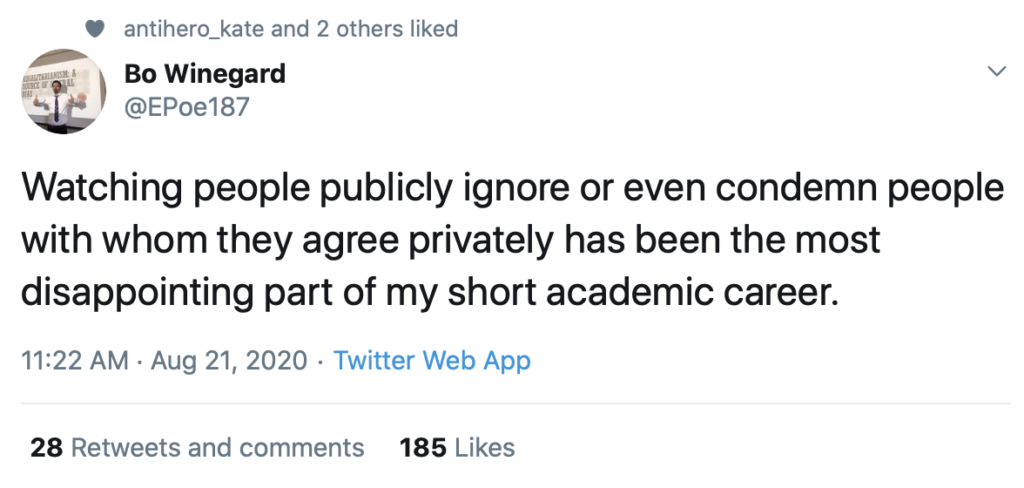The Problem with Stifled Dissent
Why should we care about suppressed and chilled speech on important issues of the day? Emily Elkins of the Cato Institute offers the statistics and a clear analysis in "Most Americans Are Scared Stiff to Talk Politics. Why?"
There are many reasons to resist this authoritarian urge to squash dissent. The first is that scientific progress, and by extension, the improvement of human well‐being generally, requires free thought and open discourse. As Jonathan Rauch explains in his book, “Kindly Inquisitors,” the scientific method breaks down when people become reluctant to ask questions, be creative, challenge each other, and seek out and understand evidence.
Further, as Thomas Chatteron Williams explained in a New Yorker interview, the culture of canceling signals to people what the boundaries of “acceptable” ideas are or else suffer severe economic and emotional punishment. Thus many “steer far clear of the boundary,” causing a “narrowing…stifling effect on not just speech but on thought,” he explained.
Yet silencing people and stifling free thought isn’t an effective long‐run strategy. It rarely changes minds. It just shuts down civil discourse and prevents people from having opportunities to modify their ideas in the face of new information. Instead, people hold onto their opinions, and just sweep them under the rug.
Political opponents’ disengagement doesn’t necessarily mean victory. Americans still vote. And their political views, silent or expressed, affect how they vote. Persuasion is necessary to change how people think and thus who and what they vote for. But persuasion is hard and requires open dialogue.
Social psychologists have found evidence that we aren’t very good at updating our opinions by ourselves. We need other people we respect to ask us to explain our views and then challenge us with new considerations. It’s typically through this back and forth process that we update our views when people we trust present us with new, compelling information.
But this only works when we feel comfortable to engage in a dialogue. Thus it is only with open dialogue that people’s opinions can be examined, understood, or reformed. Thereby, the best long‐term strategy is persuasion, not silencing. And persuasion requires open debate.




